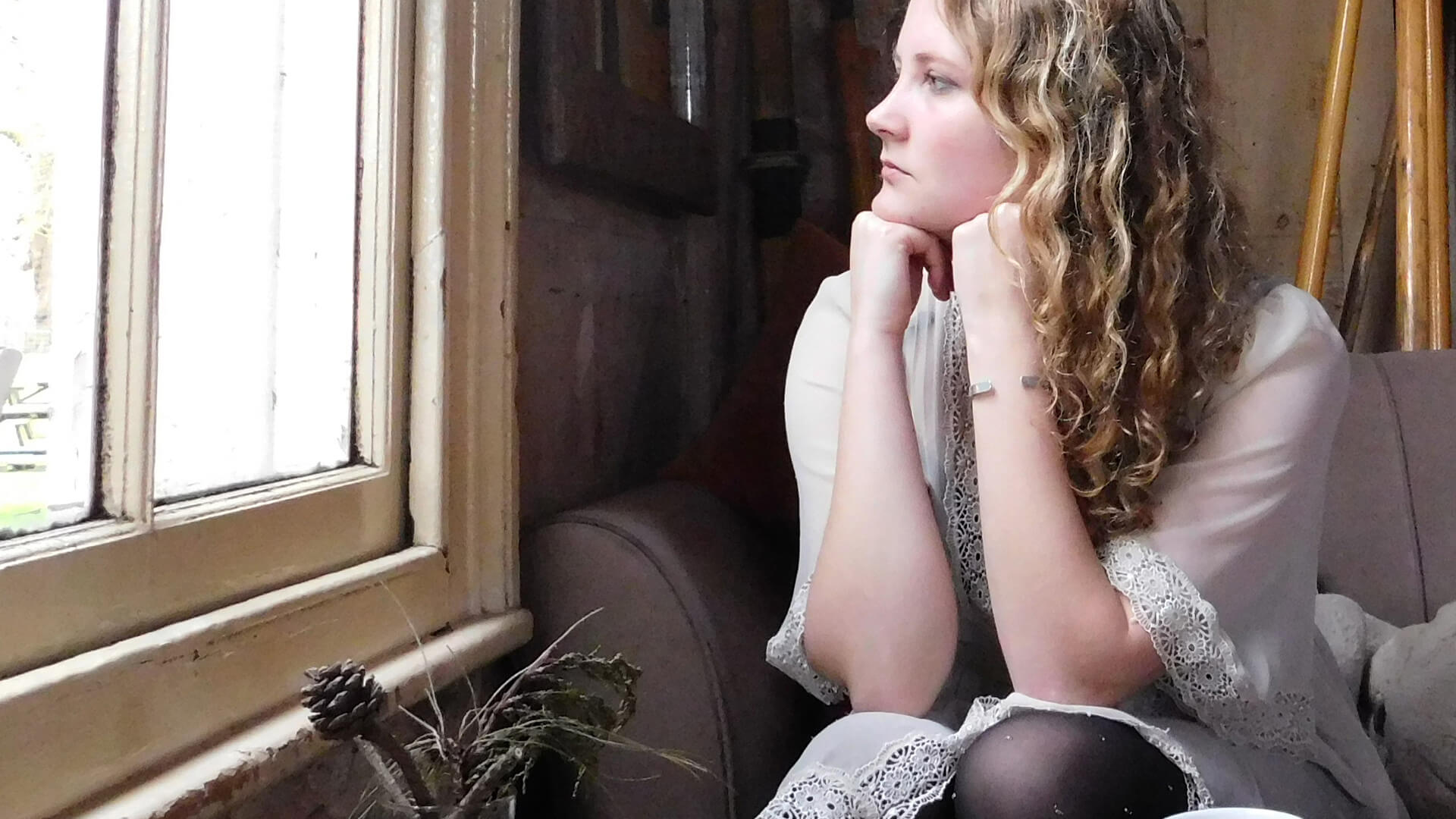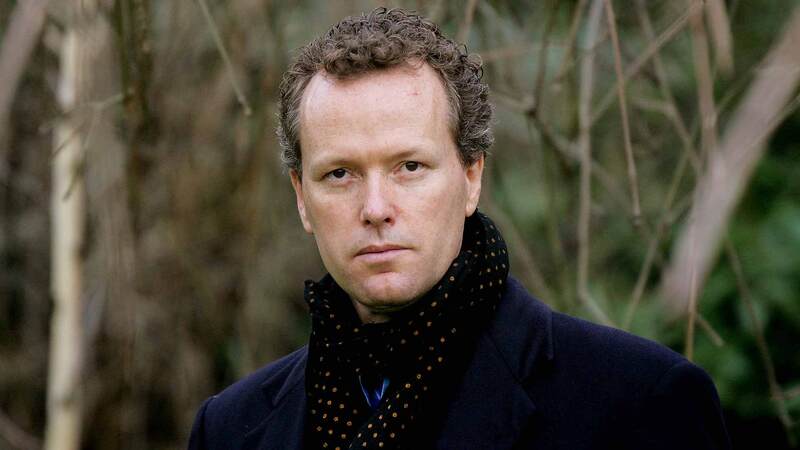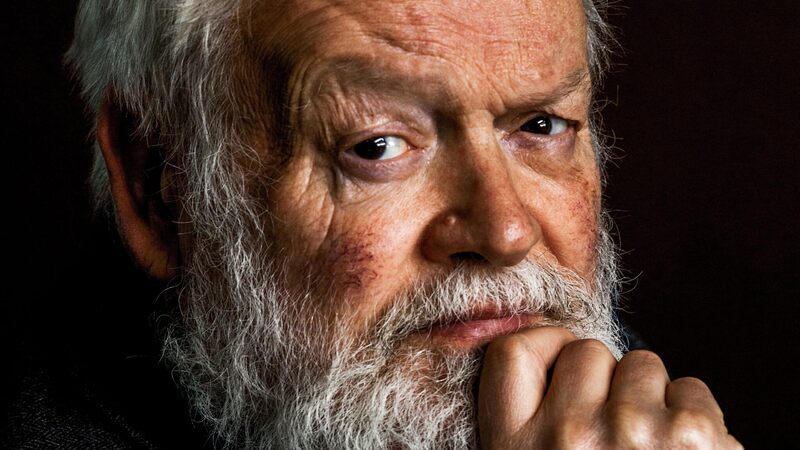You are viewing your 1 free article this month. Login to read more articles.
Daisy Johnson on horror, intense sibling relationships and her unique literary style
Daisy Johnson’s latest novel revolves around an intense sibling relationship and the horrors that lie within
"My sister is a black hole. My sister is a tornado. My sister is the end of the line my sister is the locked door my sister is a shot in the dark. My sister is waiting for me.” So begins Daisy Johnson’s extraordinary second novel, Sisters, a short, sharp virtuoso tale of literary horror with a stop-you-in-your-tracks ending that casts the entire novel in a different light.
Sisters begins with an escape. July narrates as she and her older sister September are driven by their mother, Sheela, to a rental house somewhere on the North Yorkshire coast. It seems that they are fleeing their home in Oxford after something undisclosed but awful happened at the girls’ school. When they arrive at the remote, decaying Settle House, it is clear that the sisters are isolated, seemingly far from civilization and trapped in a place where strange, inexplicable things soon start to happen.
So far, a typical horror scenario, and when Johnson speaks, over the phone from her home in Oxford, she tells me of her love of horror films: “I grew up on ‘Hallowe’en’,” she says, and enthusiastically reels off a list of horror classics—“The Exorcist”, “Night of the Living Dead”, “Nightmare on Elm Street”—which influenced her. “Looking at my early notebooks I was excited about trying to get my love of the horror genre into a book,” she says, “and into a book that was always going to be, because of the way I write, quite literary, and trying to merge those two different things.”
In Sisters, unlike her beloved horror films, there is no Freddie Kruger-esque figure. The chill in this novel exists in the gaps and spaces, in the sense that something is not quite right. It explores a claustrophobically close sibling relationship from the point of view of younger sister July (September is older by 10 months). September has always been the dominant one and July trails in her wake. Johnson, who has a sister and a younger brother (and wants it known that she gets on very well with both), says “The more I wrote about September and July, the more I wanted it to be a very problematic relationship both from the inside and the outside.” She was particularly interested in “the idea of, ‘how much should family get away with?’ Just because you’re related to someone, how much can they do to you before you realise?
I loved the idea of things, trauma or memory, passing down through the body, or in the way we relate to people
“I also think there is something quite creepy about sisters in fiction. From the beginning I wanted them to be very close to each other in age, not twins but very near to one another, and to feel very connected by this, and for both of them to feel that there wasn’t really anyone outside their relationship—it was just the two of them.”
Even Sheela, their own mother, feels excluded by their relationship. Something is wrong with Sheela, she is perhaps depressed and the novel alludes to a deep trauma within the family. Sheela’s husband, the girls’ father, drowned when the girls were little. Hinted at, and circled around, is the suggestion of domestic violence. “I was really interested in, particularly from Sheela’s point of view, her worrying that her husband had been this particular way, and what had he passed on to the children? And maybe in her worrying about it, making it worse,” says Johnson. “I loved the idea of things, trauma or memory, passing down through the body, or in the way we relate to people, often in a way that we are not even conscious of. I suppose there’s something quite horror about that idea—something that is buried, and is gradually dug up…”
Sisters exhibits some tropes of horror but what makes the novel so extraordinary is Johnson’s writing style which has been in evidence from Fen, her acclaimed first collection of short stories, and her début novel, the Booker-shortlisted Everything Under (which made her, at 27, the youngest person ever to be nominated for the prize). Celeste Ng is spot-on with her description: “Johnson writes in a torrent of language as unrelenting and turbulent and dark as a river.” When I ask Johnson about her style, she attributes it, modestly, partly to her “not being particularly good at spelling or punctuation, I’m a little dyslexic so I think about sentences in a different way.”
Everything Under is written in a different way to Sisters, they are written from different points of view, and how a particular character would tell something
The richness and layeredness of her prose must also be linked to the fact that the book itself “condensed down and became a lot shorter” from many, many rewrites. Her first draft was nearly double the finished book. “I was really fighting for it to be longer” she recalls, but “it never worked at all. Every draft I would just delete more!” Although it was a wrench to delete so much, and let entire storylines go, she is a fan of reading short novels citing Deborah Levy’s Swimming Home and Ghost Wall by Sarah Moss: “Because they are so short, and you live with them for such a short time, they can really enable such an intensity of plot or language. Something like Lanny by Max Porter just couldn’t be any longer.”
Shirley Jackson, the American writer of acclaimed psychological horror novels The Haunting of Hill House and We Have Always Lived in the Castle, was also a strong influence on Sisters: “I love the way she writes about buildings and homes and particularly a woman’s relationship to the home, and to the domestic. I really wanted Sisters to have these moments of quite intense domesticity; they spend a lot of time watching TV and eating cheese sandwiches.” In Jackson’s books, as with Sisters, Johnson says: “the characters are haunted inside themselves, and what is inside them comes out. I don’t think anyone else does that quite as well as she does.”
Sisters took two years to write. “I think the reason that so much rewriting is needed is to find the right way to tell a particular story. Everything Under is written in a different way to Sisters, they are written from different points of view, and how a particular character would tell something.” She gives an example: “Sisters wasn’t in the first person for a long time, I felt quite anti-the first person, but eventually it became clear that it needed to be primarily from July’s point of view and that really changed the way the language was, because she does feel this torrent of panic in quite a lot of the book.”
Extract
This the house we have come to. This the house we have left to find. Beached up on the side of the North York Moors, only just out of the sea. Our lips puckered and wrinkled from licking crisp salt, limbs heavy, wrought with growing pains. The boiling-hot steering wheel, the glare off the road. It has been hours since we left, buried in the back seat. Mum said, getting into the car, Let’s make it before night. And then nothing else for a long time. We imagine what she might say: This is your fault, or, We would never have had to leave if you hadn’t done what you did. And what she means, of course, is if we hadn’t been born. If we hadn’t been born at all. I squeeze my hands together. Not being able to tell yet what the fear is of, only that it is enormous. The house is here. Squatting like a child by the small slate wall...
The angle may have changed over time but Johnson always knew she was going to write about the deep bond between two sisters. “I think I will always write about family” she muses “because I think the fact that you can’t choose your family but they are, in most cases, the people who most impact you or make you the person you eventually are, is very interesting.”











